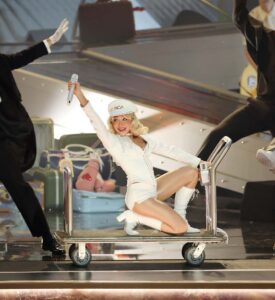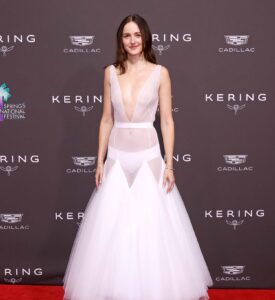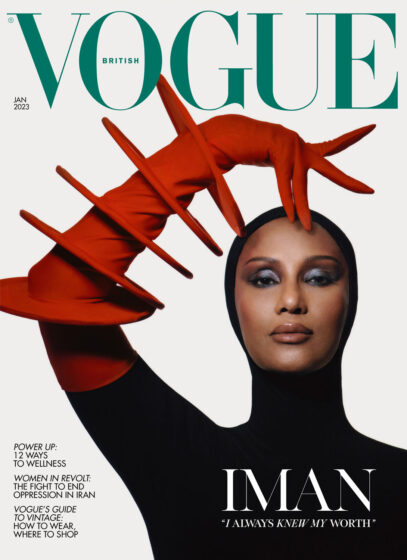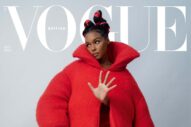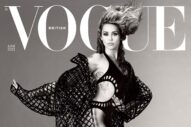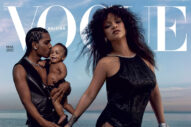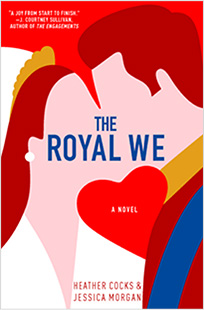It’s almost incomprehensible to me that Iman hadn’t been on British Vogue before, but then, in the story she mentions that she mostly stopped modeling by 1989 — an astonishingly long time ago considering how relevant and famous she remains. Some of that has to do with her switching gears to activism and her cosmetics empire, and as she astutely notes, she didn’t really need the work. But she is truly iconic, and I’m pleased that the team at BV gave her a cover that feels so extremely old-school Fashion Magazine. It’s striking and a little avant-garde. I have to confess that I am not sure I love the lighting on the left side of her face (right side of the photo), as it gives the merest hint of an eclipse, and I’m concerned I will go to hell for the fact that her facial expression reads a bit flat. But there’s something marvelous about a person so confident in herself that she puts on a black catsuit that obscures everything but her face. And then a Seussian rubber glove. And still makes you look right at her. So if it’s possible… I like the cover and I like the model, more than I like some of the actual modeling being done on the cover.
The profile by Funmi Fetto is a great read, going into detail about her childhood and poking holes in the various racist myths that sprang up about how she found her way to modeling:
Peter Beard, the late American photographer, claimed he discovered Iman herding goats in the bush and that she didn’t speak English. In a 1975 article in the New York Post, fashion columnist Eugenia Sheppard wrote: “New York will soon be bowled over by the arrival of a fashion model from Nairobi who will appear wearing an elephant-fetish jacket and a dozen or so gold band necklaces.” Other publications described her as a “Somali tribeswoman” and a “cattle girl”. Iman attempted to set the record straight at a press conference: “I said, ‘By the way, I do speak English and four other languages. I’m not a goat herder.’” What’s more, “I’d never seen a jungle in my life. But,” she adds with a shrug, “they took the other story and they ran with it.”
She also gave this banger of a quote about the industry’s “three steps forward, five steps backward” issues with inclusion:
“Look at what is happening across Europe, in America. We are seeing the rise of white supremacy reverberating across all industries. People are starting to feel like, ‘We’ve done enough.’ As if we are a charity. Don’t give me a handout, because that in itself is a racist act. The reason a lot of [racist] things are happening in our industry is because there is nobody [non-white] in decision-making positions. These people exist. So this idea that we are asking for a seat at the table… I’m done with the seat at the table. Let’s just dismantle the whole table.”
Iman is the real deal. Enjoy.
